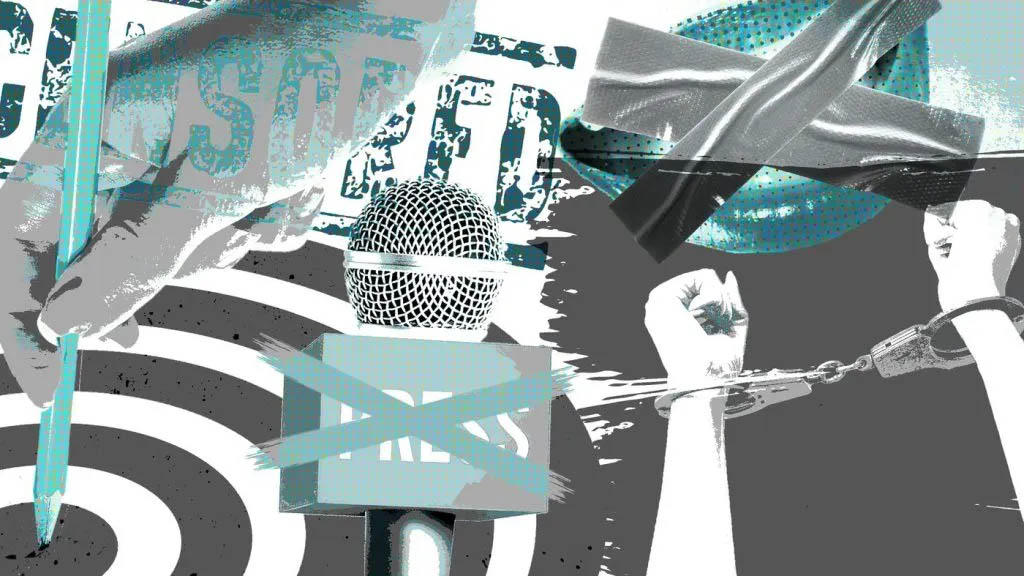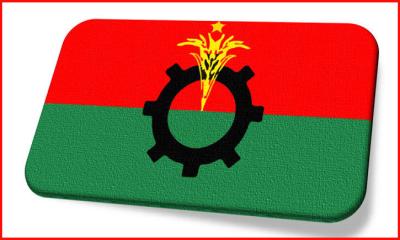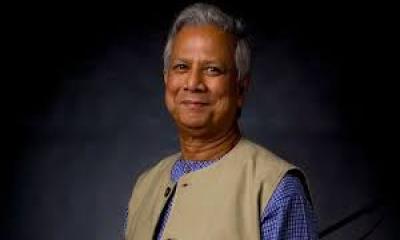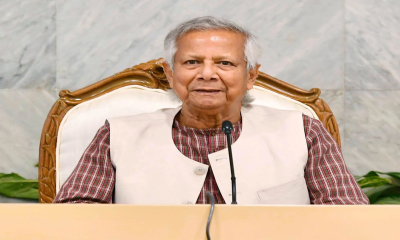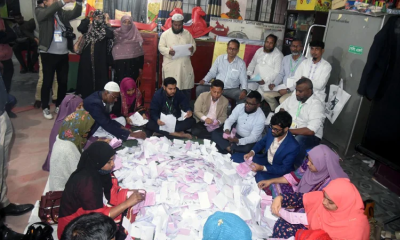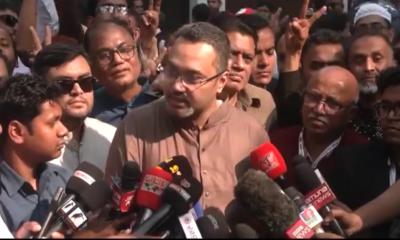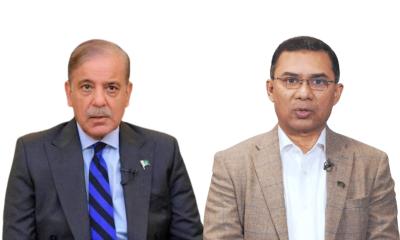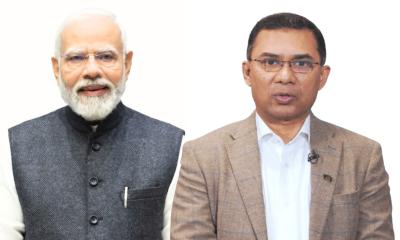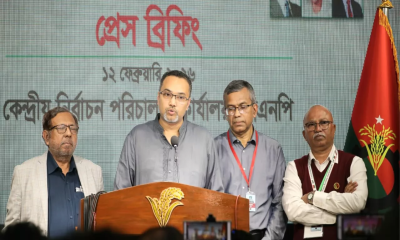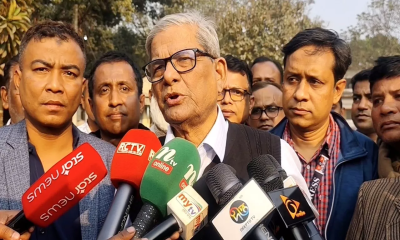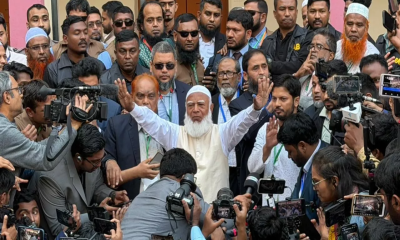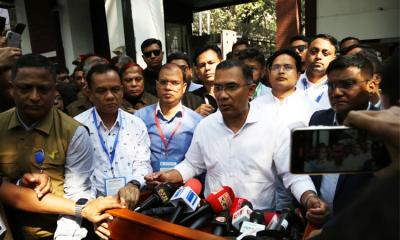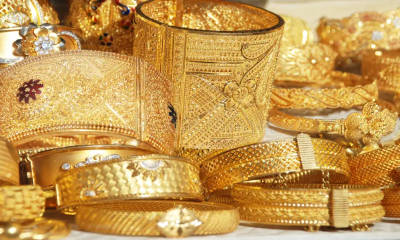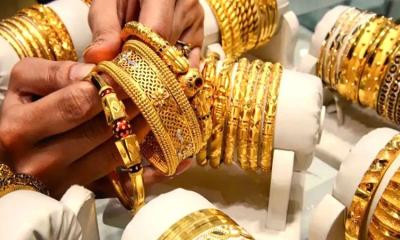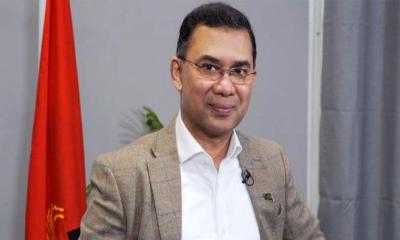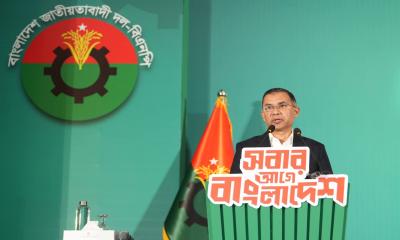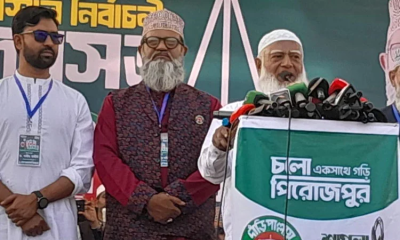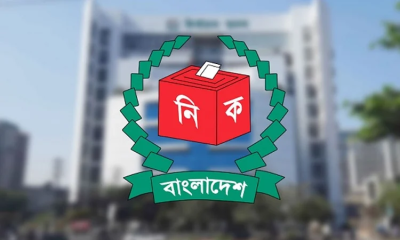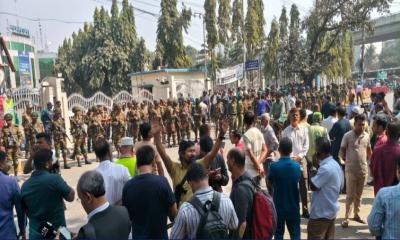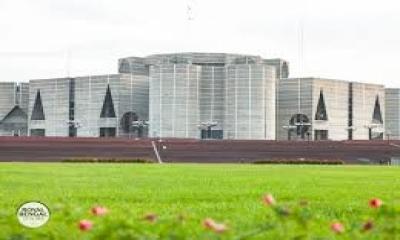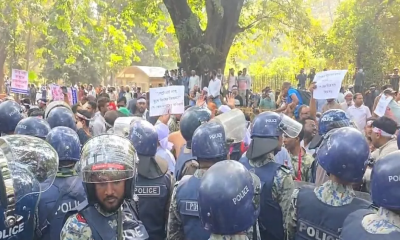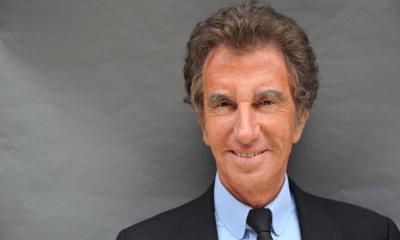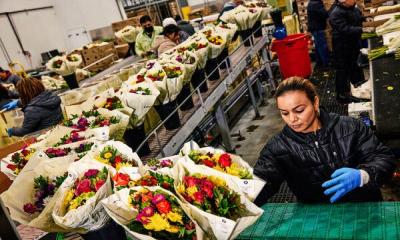In past 2 days, over 20 journalists have been injured in a series of violent attacks across Bangladesh.
The attacks, which range from brutal assaults to life-threatening injuries, have raised serious concerns about the safety and freedom of the press in the country.
Here’s a breakdown of the incidents:
A Wave of Violence Against Journalists
The attacks took place in various districts, with some of the most horrific incidents reported from Dhaka, Kalapara, Lakshmipur, Shariatpur, Kurigram, and Nilphamari.
From being hacked with machetes to being beaten with bamboo sticks, these attacks have one thing in common: they are all an attempt to silence journalists who are simply doing their job of reporting the truth.
High Court Attack in Dhaka: Journalists Targeted by BNP Activists
The most recent attack occurred at the High Court in Dhaka, where BNP activists turned violent against journalists following a ruling in the long-running Sheikh Hasina assassination attempt case from 30 years ago.
Journalists had gathered outside the court for a briefing when over 100 BNP supporters, led by party advisor Habibur Rahman Habib, created chaos.
The situation escalated when the activists attacked journalists in protest.
ATN News senior reporter Javed Akhtar was among those injured and rushed to the hospital.
At least 10 other journalists were also physically assaulted, with one microphone destroyed.
In response to the attack, journalists staged a sit-in, demanding justice and accountability.
Kalapara Incident: Journalist`s Hands Severely Injured
Attacks also occurred in Kalapara, Patuakhali, where Jahirul Islam Miron, a correspondent for BanglaVision television, was mercilessly hacked by assailants who severed the tendons of one hand and left his other hand`s wrist hanging.
This attack took place around 12:30 AM on February 4, when an armed group attacked him outside his home in Kuakata municipality.
In addition to the severe injuries to his hands, Miron suffered multiple deep gashes to his forehead, head, abdomen, and various parts of his body.
His family and locals rushed him to Kalapara Upazila Health Complex, where he received emergency treatment before being transferred to Barishal for more advanced care.
According to his family members, Miron had just returned to Kuakata from Dhaka that evening.
He had stepped off at Tulataly highway in Kuakata and was heading to his house, just 50 yards away, when the attackers ambushed him.
As he screamed for help, he collapsed. His family and locals immediately took him to the hospital.
Lakshmipur Incident: Journalists Attacked with Bamboo Sticks and Threatened with Guns
On February 3, in the afternoon, four journalists were assaulted while on their way to cover a story in Dattapara village in Lakshmipur Sadar Upazila.
The attackers, wearing masks, reportedly fired shots at them and then viciously beat them with bamboo sticks.
The injured journalists included:
- Rafiqul Islam, District Correspondent for Dainik Khoborer Kagoj
- Abdul Malek Nirab, Correspondent for Amar Barta
- Md. Alauddin, General Secretary of Chandraganj Press Club
- Faisal Mahmud, Publicity Secretary of Chandraganj Press Club
They were immediately admitted to Lakshmipur Sadar Hospital.
The journalists explained that the attack occurred during a dispute over land.
When they arrived to cover the incident, a group of 8-10 masked men blocked their motorcycles, threatened them with weapons, and ordered them to leave.
When they refused, the assailants held them at gunpoint and attacked them with bamboo sticks.
Shariatpur Attack: Four Journalists Assaulted with Knives and Hammers
In Shariatpur, on the same day (February 3), journalist Sohag Khan Sujon, a representative of Dainik Samakal, was attacked with knives and hammers due to a news report he had written.
Additionally, three other journalists who tried to intervene were injured:
- Bidhan Majumder Oni, Correspondent for News24
- Nayon Das, Correspondent for Bangla TV
- Saiful Islam Akash, Correspondent for Desh TV
The violence stemmed from a previous report about a doctor at Shariatpur Sadar Hospital allegedly throwing away a patient`s prescription on January 28.
On February 3, as Sujon was heading to his office, he was attacked by a group of 10-12 men led by Nuruzzaman Sheikh.
The assailants held him down and beat him with knives and hammers.
Kurigram Incident: Journalist Beaten for Reporting on Local Politics
In Kurigram’s Rajibpur Upazila, journalist Sujon Mahmud was attacked on February 3 at 7 PM for publishing a report on local politics.
The incident occurred in Rajibpur Bazar’s Computer Alley, and the attackers were reportedly supporters of former BNP Rajibpur Upazila president Mokhlesur Rahman.
Sujon recalled the attack:
"I was talking with my colleagues in Rajibpur Bazar when a group of about 30 to 35 BNP leaders and activists suddenly attacked me. During the assault, Sohel Rana, the Organizational Secretary of the local labor union, and Abdullah Al Mamun, a student leader, warned me: `How dare you publish news again and file complaints to the police?`"
The attack was allegedly in retaliation for a report Sujon published on January 3 in the online news outlet Bangla Edition, titled:
"Principal Retained in Position, BNP Involved Behind the Scenes."
Nilphamari Incident: Journalist Attacked for Exposing Corruption
On February 4, in Dimla, Nilphamari, journalist Rezwan Islam, a district correspondent for the online news outlet Barta Bazar, was attacked following a report he had published on February 3, which highlighted corruption in a road construction project.
The report was titled:
"Corruption in Government Projects: Irregularities in a Tk 3 Crore Road Construction."
Shariful Islam Dulal, a subcontractor working on the project, allegedly attacked Rezwan, who was later rescued by locals and taken to the hospital.
During the assault, the attackers stole cash from his pockets and also took his motorcycle.
The Bigger Picture
These violent attacks are a serious blow to press freedom in Bangladesh.
The journalists who were attacked were simply doing their job—reporting the truth. In many cases, the assaults were direct consequences of exposing corruption, political disputes, and local scandals.
The attackers have one thing in common: they want to stop the press from exposing their wrongdoings.
These recent incidents should be a wake-up call for authorities. If journalists are not protected, the public will not have access to truthful information, and freedom of the press will continue to be at risk.
It is vital that the government take immediate action to ensure the safety of media workers and hold those responsible for these attacks accountable.
This series of attacks has highlighted the growing danger that journalists face in Bangladesh.
The escalating violence against the press raises questions about the future of press freedom in the country.
Will the government protect its journalists, or will this violence continue to escalate? Only time will tell.


